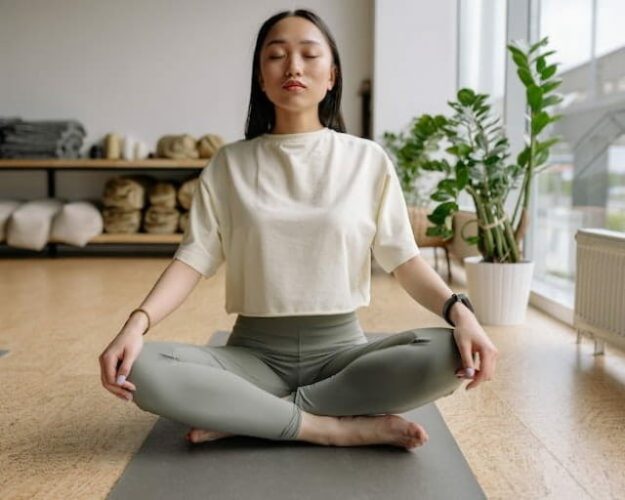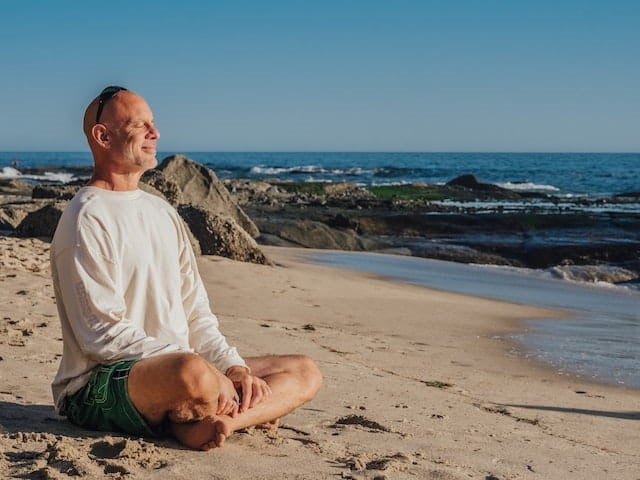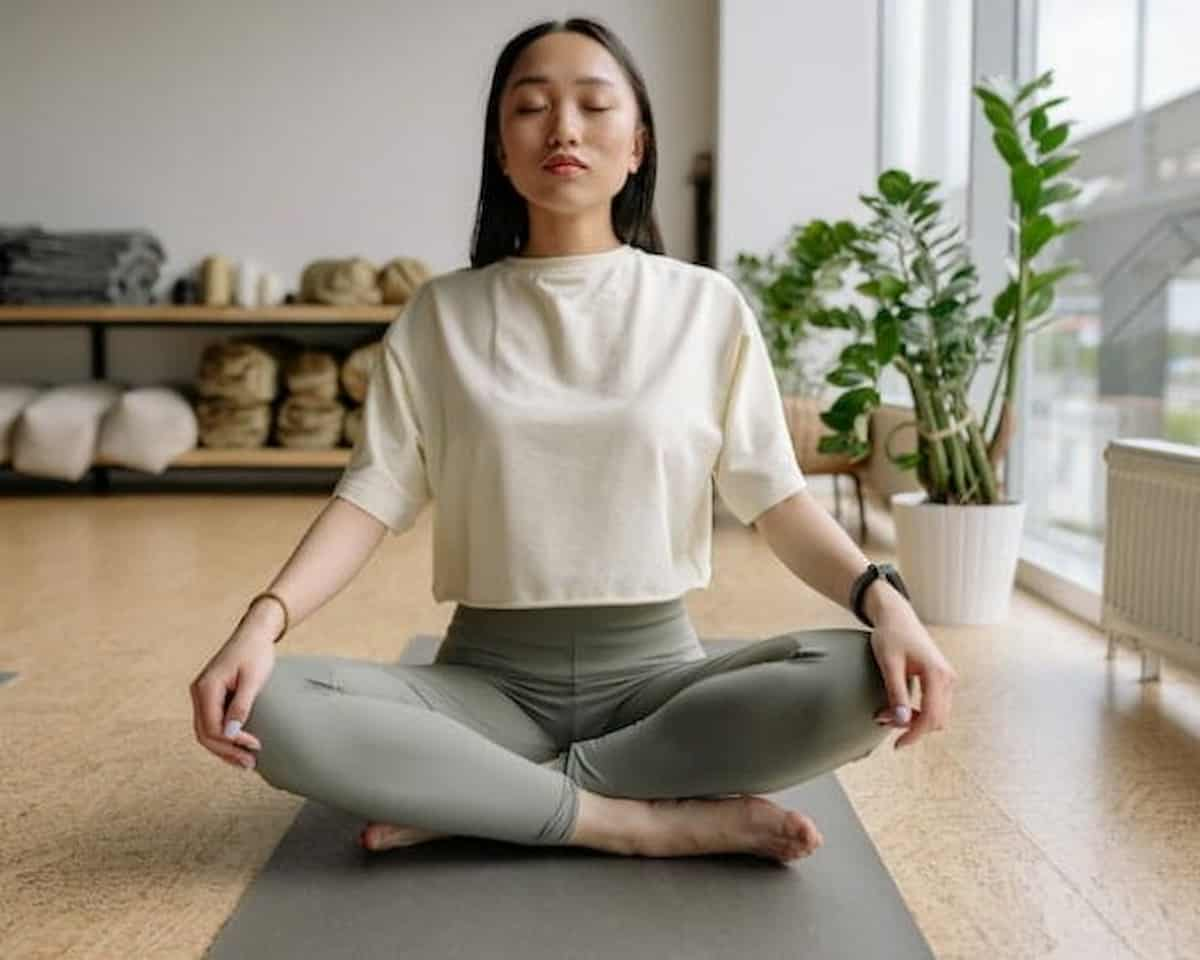Most people have a distorted view of meditation. Here are some of the most common things they usually say:
- I need to think about nothing
- I don’t see images
- I need to be in a vacuum of thoughts and images
- I need a lot of time a day to meditate
- It’s hard to meditate
- It is religious
- It will take years to feel the benefits
- It is an escape from problems
- It’s selfish
What is meditation?
Meditation is many concepts and not one:
- It is the education and cultivation of the mind
- It is mental exercise just like physical exercise – of equal and greater importance!
- Learning to manage thoughts
- A state of relaxation and alertness at the same time
- You connect with the Θ waves of the brain which, according to the latest research, lead to super consciousness (super brain). These are only activated in meditation and retrospective healing – insight, intuition, communication.
- It is the connection with our higher – wise self or higher mind and later with god in the more advanced stages
- It is learning to manage our everyday life
- It is the control of negative emotions
- It is learning positive emotions such as peace, acceptance, forgiveness, love, joy
- It is learning to connect with people through a unifying lens of love, acceptance and understanding
- It is the reduction of ego-centrism, egoism
- It is the perception of new worlds and new brain synapses
- It is the promotion of good health
- It is the total transformation of our brain
Why meditate?
Meditation and mindfulness are tools used, among others, by psychologists, teachers and coaches to teach the skill of living in the here and now, focusing your mind on the present and to experience it 100%. Think how valuable this skill is in a world that moves at breakneck speeds, where “yesterday” is the new “now.” Research published in the Journal of Personality and Social Psychology confirms what has been known for over 2,500 years: Mindfulness leads to a better present.
What are the benefits?
- Thought management
- Emotion management
- Reducing stress
- Reducing depression
- Reduction of fear
- Concentration
- Memory improvement
- Improving relationships
- Developing self-confidence
- Developing self-esteem
- Cooperation
- Reinforcement of positive emotions
- Health
What does meditation help with?
Meditation will help you develop the skill to live 100% in the here and now, experts say. One of the great qualities of meditation is that you can do it anywhere and anytime. Forget monks floating in a state of nirvana. Forget the scented candles, the quiet and the dim light – these help, but are not essential.

How many meditation techniques are there?
There are many meditation techniques:
- Mindfulness meditation
- Meditation with repetition of words or phrases in Greek, Sanskrit, Tibetan – mantra meditation
- Meditation with placements of the palms and fingers of our hands, over 200 specific placements – mudra meditation
- Meditation through movement – mindfulness yoga, chakra yoga, transformational yoga, kundalini yoga
- Meditations through multiple breathing techniques
- Guided meditations for peace, joy, calm, acceptance, health, relationships, abundance, well-being, self-awareness, etc.
- Creative visions to achieve goals
- Insights, communication and metaphysical levels
- Meditation to activate and cleanse the chakras – chakra meditation
- Zen meditation
- Vipassana meditation
- Christian meditation
- Hindu meditation
- Buddist meditation
- Kundalini mediation
- Kriya yoga meditation
- Transcendental meditation
And many more…
Can I meditate if I have never meditated?
Each of us is capable of this training. One of the best techniques is the mindfulness meditation technique, since the focus is on breathing, on the body, on observing thoughts and feelings without critical analysis. It teaches you simple gratitude and kindness meditations. It teaches you how to always be present through your daily activities. It teaches you a new way of life!
Meditation for beginners: 9 essential tips
Meditation refers to a training of body and mind which aims at the exclusive mental focus on an object and is achieved by deep relaxation, the removal of all thoughts and external stimuli from the consciousness of the one who is meditating. The benefits of meditation are important for our health and include improving attention, reducing stress and achieving a general sense of well-being. In fact, recent research has shown that meditation can change the structure of the body’s cells to the benefit of the individual. Want to benefit from meditation too? Before you start doing anything see nine basic tips that will help you.
1. Try to find ten minutes of time
Many people believe that meditation takes hours, but such a thing – at least with today’s limited time – is not easy. So, if you are just starting meditation and have a particularly busy schedule, ten minutes a day is a good start. Don’t know how to get started? Apps like Meditate, Calm and Mindfulness Meditation will help you a lot.
2. Limit distractions
To be able to meditate properly, you need to find a quiet place where you will not be distracted. Leave your mobile in another place or if you are using a special timer or application, remember to put it on silent so that you will not be disturbed by any calls, messages and notifications.
3. Feel comfortable
It is especially important for successful meditation to get comfortable, but not to lie down – unless you want to sleep. Experts recommend sitting properly in a chair, with your shoulders back and both feet firmly planted on the ground. Your hands should be at your sides and touching your hips. As for your eyes, you can either leave them open or close them.
4. Find a point to focus on
Lock your mind to a specific object, so that you can relax throughout the process. Focus on your breath, a spot on the wall, a word or even a specific sound. Counting your breaths can be especially effective for staying focused.
5. “Feel” every part of your body
A very good beginner’s tactic is to “feel” your body when you enter a meditative state. When your mind is calm, focus all your attention on the feet, then slowly move to the upper body, including your internal organs.
6. Stretch
Stretching exercises relax muscles and tendons, allowing you to sit or lie more comfortably. In addition, the process of stretching begins the process of “introspection” which is necessary for meditation and helps you to focus even more on your body.
7. Realize when your mind is wandering
Can’t get your mind off the things you have to do during the week (obligations, meetings, etc.) or the Friday party? Meditation is all about training yourself in the right thinking and movement. So, when your mind starts to wander off, try to banish the thoughts that are distracting you and bring your mind back to the present moment. It is very important to recognize when your attention is distracted and, when you do, try to bring it back to your practice.
8. It’s okay to be disappointed
It is perfectly normal to feel uncomfortable in your meditation practice at first. Various thoughts invade your consciousness and your mind is just not calm in the first meditation sessions. You may also feel bored, discouraged or even angry. But it is especially important to accept these feelings, acknowledge them as part of human nature, and understand that everyone who meditates has felt something similar at some point.

9. Make meditation part of your everyday life
As experts point out, you won’t really see the benefits of meditation unless you commit to practising it on a regular basis. But since acquiring a new habit is a difficult task, first aim to “stick” meditation to an already existing habit. For example, do you go for a run every morning? Try fitting in a few minutes of meditation after your workout. Do you do afternoon pilates? Set aside a few minutes when you get home to meditate.
Overcome your obstacles
- Clarify why: Every vision starts with a why. Put a goal in your mind, e.g. to feel calmer or to enjoy more moments in the day, and every time you find an excuse to avoid meditation think about your goal. If you manage to keep the “why” alive within you, you will have taken a big first step to incorporate meditation into your life and begin to change it for the better.
- You can’t bear sitting still: In a world of constant action, from your ever-refreshing social media timeline to your work and exercise, the thought of sitting still for a few minutes can be uncomfortable. Help yourself by creating a more favorable environment: choose soft music, light a candle, place a vase of flowers around you and focus on these sensations first.
- Pick a moment: It could be as soon as you wake up, before you even get out of bed. It can be before you go to bed or when you get home and take off your work clothes. Those who have made meditation a part of their lives swear that after you have practised for a period of time, you will be able to enter a meditative phase at any time of your day, even if there are people around you. In the beginning, however, you should try to include him in your daily life.
5 minutes are enough!
Sit comfortably, close your eyes or focus on a positive image in front of you, such as a flower or a candle flame, and focus on your breathing and exhaling. Start with five deep breaths and “see” the air you inhale filling your whole body, lungs, belly, traveling to your limbs and head. Exhale slowly and imagine that with each exhalation you expel from your body and mind everything negative and unpleasant. After completing the breaths, concentrate on a beautiful image: Imagine that you are lying on a beach and listening to the sounds of the sea, or that you are sitting in a meadow and smelling the flowers. At first it is natural for your mind to “leave” these thoughts and return to everyday life.
A simple 1’ mindfulness meditation exercise
- Sit comfortably in a chair with your feet flat on the floor
- Place your hands on your feet
- Close your eyes
- Inhale through the nose and exhale through the mouth gently and slowly for 3 times
- Feel that your body is already starting to relax
- Now continue to take soft, calm breaths through the nose only
- Focus for just one minute on your breath as you inhale and as you exhale
- If thoughts come into your mind, bring it back to your breath
- Open your eyes and notice for just 1 minute what has happened to your body and mind
If until now you thought you could never meditate, know that with this exercise you are already half way to meditation!
So, if you enjoyed 1 minute of relaxation, imagine what 25 minutes can do for you!

















